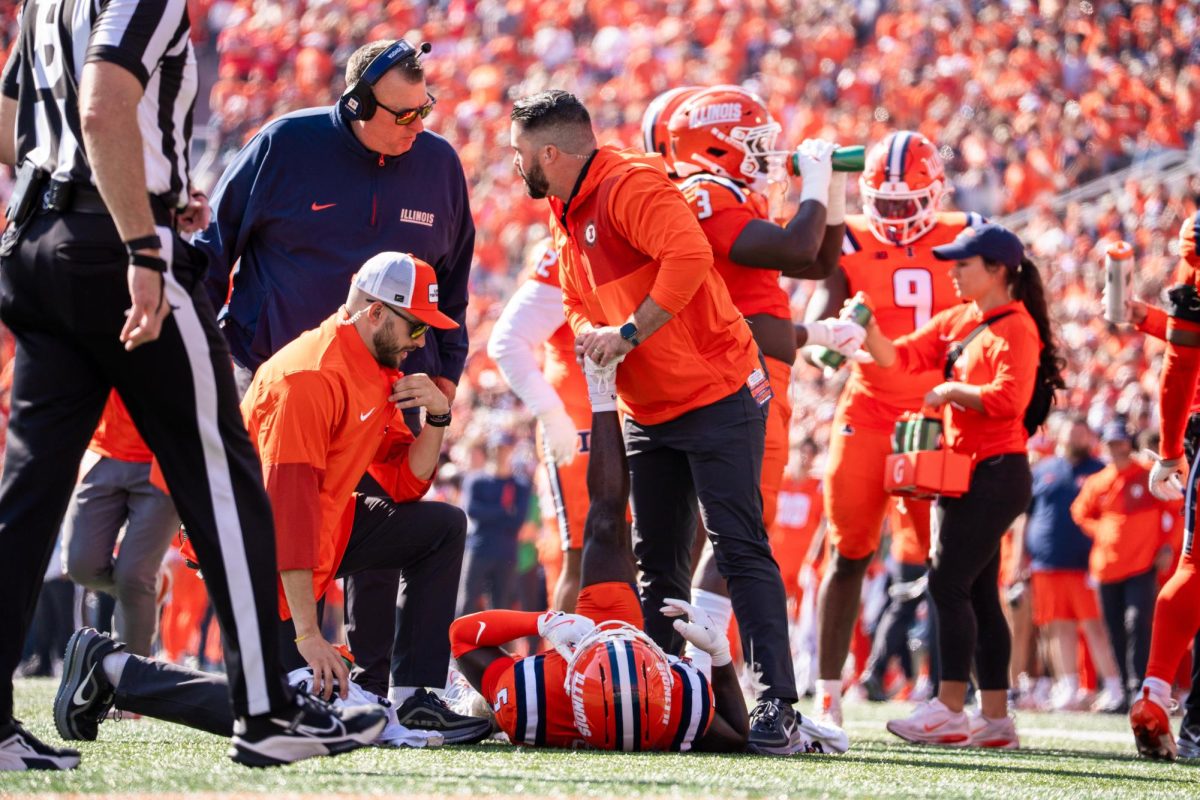The University announced last week that it would partner with Coursera to offer an assortment of free classes online to the public.
Coursera, according to its website a “social entrepreneurship company,” is partnered with 16 universities, including the University of Pennsylvania, Stanford University, the University of Toronto and the University of Michigan.
Illinois is among the latest to join with the website and the first land-grant university to do so. Chancellor Phyllis Wise said in a mass email that it was “a red-letter day” for the University.
“This serves our land-grant mission by sharing knowledge with people who can’t physically come to our campus, and it allows us to introduce ourselves to prospective students and lifelong learners across our state and around the globe,” Wise wrote.
Stanford University’s Andrew Ng and Daphne Koller founded Courser, which follows in the same vein as Udacity, a similar project also founded by Stanford professors. Offering college-level courses to the public free of charge, as it turned out, was a very popular idea.
Get The Daily Illini in your inbox!
“The thing that amazed everybody is that suddenly these courses had 100,000 people signing up. And, whoosh, you know, the whole massive, online, open course thing was born,” said Rob Rutenbar, a computer science professor who helped put the partnership together. Rutenbar will be teaching a Coursera MOOC, or massive open online course.
While all these programs, including the Massachusetts Institute of Technology and Harvard University collaborative nonprofit project edX, have roots in computer science, Coursera has expanded to include subjects ranging from astronomy to science-fiction literature to the Affordable Care Act. Coursera currently offers 111 different courses, all of which can be taken for free, though that may change, as Coursera is a for-profit organization.
“In the future we will be pursuing monetization strategies, though no plans are being put into action at this time,” Ng and Koller wrote in a co-authored email. They said Coursera will always offer courses for free, but they eventually want to generate income to sustain the business. Of the courses currently offered, 10 are taught by University professors.
Though Coursera is an ambitious and, thus far, successful project, the founders said they did not foresee organizations like Coursera replacing typical college education.
“We envision Coursera being integrated into universities and colleges, not replacing traditional classes but rather enhancing the learning experience for students,” they wrote. “One way that this can be done is through the Flipped Classroom model, where students watch video lectures online prior to coming to class and then use regular class time to engage with the material on a deeper level.”
As for Illinois, the Coursera partnership presents an opportunity to showcase Illinois coursework to countless people who previously may have not have had the chance.
“The on-campus version, the opportunity to be physically in my class with 50 other people, that’s unique,” Rutenbar said. “That’s what’s going to bring people to Champaign-Urbana, but we offer for the first time to share in a deep way, a little bit of what our teaching looks like. We think that’s going to be stupendous in terms of attracting smart people to come to the University of Illinois.”
Rutenbar related it to the mid-1990s, when the Internet was becoming popular.
“A lot of us are standing back going, ‘Wow, this is probably going to be big,’” he said. “Do we know where this is going to be in 10 years? Nope, I’d be lying if I said I did. But we all think it’s important for the best universities, and we are one of them, to be part of the conversation.”





